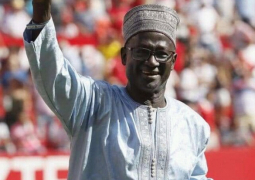The asylum seekers mainly from the Middle East and North Africa also included refugees and other economic migrants from both The Gambia and Senegal.
Some of the affected Senegambians have already contacted the Point expressing not only “worries and uncertainties” but also “suspicions” doubting that they may be transferred to Kigali in the next few weeks.
Consequently, the disagreement between the two came on the heels of the “imminent risk” of transferring the asylum seekers who are currently seeking shelter in the country.
The Law Society insisted that “forcing them to make their claim for sanctuary in that country instead of in the UK, raises serious concerns for the rule of law and access to justice”.
Lubna Shuja, Vice President of the Law Society, a highly respected and esteemed legal luminary and an advocate of human rights noted that the decision will be challenged.
In a recent message of “appreciation” to the Point, Lubna also revealed to this correspondent that a “judicial review” will be conducted.
She further disclosed: “We are awaiting the outcome of the UK Rwanda judicial review decision which is expected in September…if there is anything further, that either I or the Law Society will update you…”
Furthermore, during a recent BBC New Night program, Lubna stressed that “legal challenges are usually a safety net that ensure government is acting lawfully, following laws agreed by a democratic parliament…”
In this instance, Lubna added: “Where the arrangement has been brought in through executive action and hasn’t been examined in detail by parliament – the court may provide the first real scrutiny of the lawfulness of removing asylum seekers to Rwanda”.
Lubna equally clarified that “it is not clear whether the policy is compatible with the UK’s commitments under the UN Refugee Convention, which states asylum seekers should not be penalised for entering a country without prior permission or through an irregular route, such as by boat. However, this policy appears to do just that.”
This correspondent who is also a member of the Law Society hears in confidence that lawyers also intend to challenge “other issues outside the Rwanda dispute for separate litigation”.
It is also suggested that if the UK does not fulfil its obligations to investigate the trafficking claim…this could mean that the government is in breach of its obligations under Article 4 European Convention on Human Rights (ECHR)”.
The government defended the decision insisting that "people who enter Britain illegally" will be sent to Rwanda...We are going to get on and deliver the plan."





